News Archive
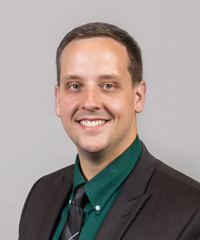
Dr. Jay McDaniel, ECE Assistant Professor and member of the ARRC, has received a prestigious Faculty Early Career Development (CAREER) Program award from the National Science Foundation's Office of Polar Programs.
This five-year project will allow the McDaniel Microwave Group to develop a custom unmanned aerial vehicle, or UAV-based radar suite with sophisticated signal processing techniques to measure the depth and distribution of snow and ice to support actionable risk management strategies and socioeconomic resiliency from snow-related weather events.
Read more here.

Yoon is a Ph.D. student in the School of Electrical and Computer Engineering, advised by Dr. David Schvartzman.
How long have you been part of the ARRC:
"I joined ARRC in October 2021."
Any scholarships/journal awards/publications ect. that you have received:
• Award: 2022 IEEE International Symposium on Phased Array Systems and Technology Student Paper Award (Second Place)
• Publication: "Kim, Yoon-SL, et. al., Fast Adaptive Beamforming Using Deep Learning for Digital Phased Array Radars."
Current Research:
"I've studied machine learning and digital beamforming for phased array radars. I built a new deep learning algorithm to perform fast adaptive digital beamforming for my Masters thesis."
What do you like to do in your spare time:
"I have two dogs, Bee and Cream, and I like to spend most of my free time with them. We go for a walk, hike, and swim."
Plans for after graduation:
"I just defended my thesis this semester, Fall 2022, and plan to continue for Ph.D. with David Schvartzman. I'm very excited to start a long new journey with him!"
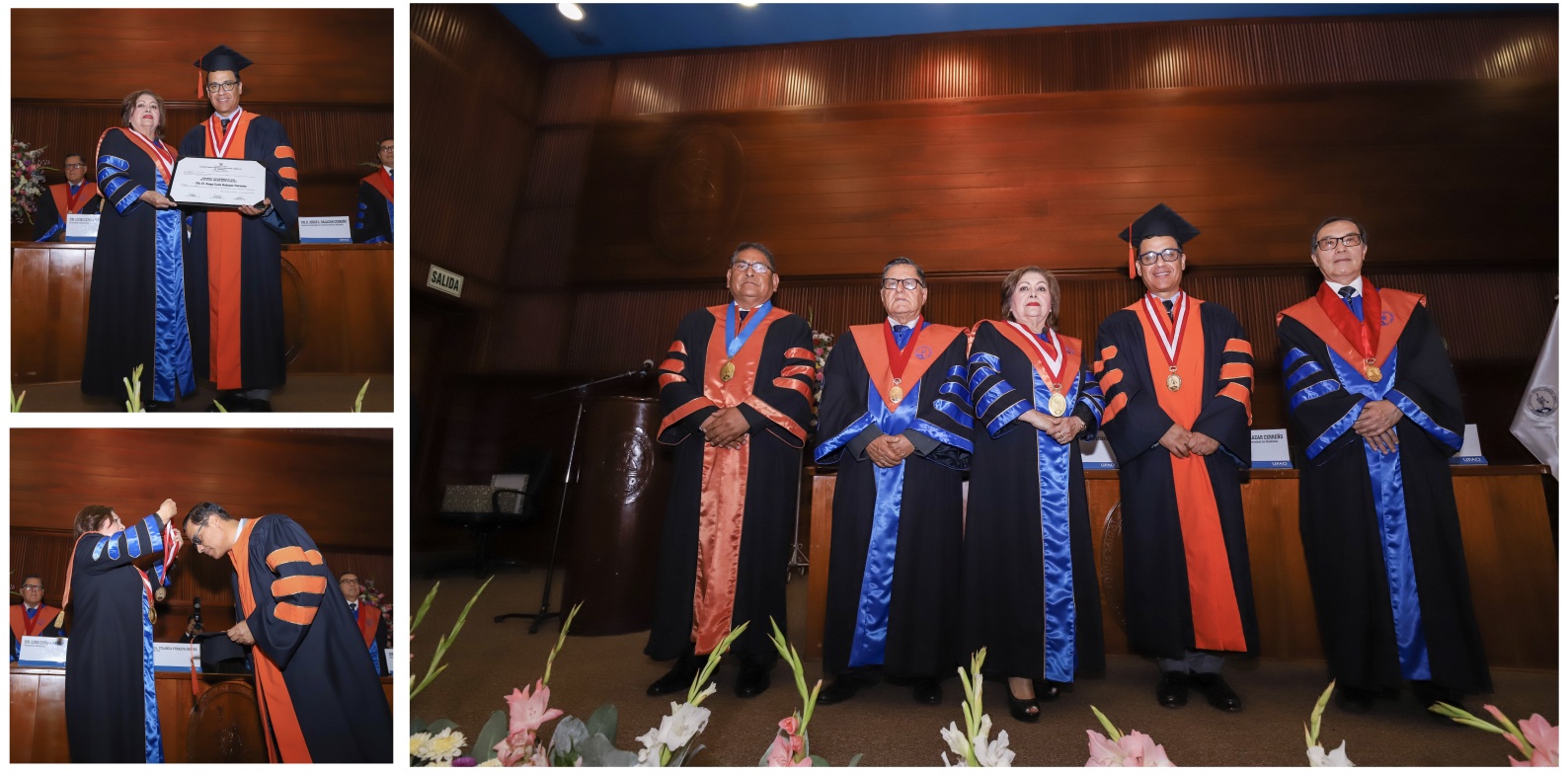
Dr. Jorge Salazar Cerreno, ECE Associate Professor and member of the ARRC, was honored recently with the maximum distinction of Doctor Honoris Causa by the Universidad Antenor Orrego in Peru.
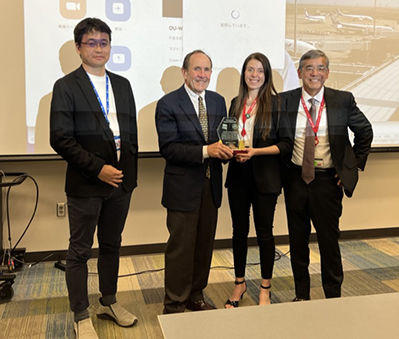
In a ceremony hosted by the ARRC on November 9, graduate student Rachael Cross was the recipient of the 2022 Weathernews Inc. Scholarship.
The $5000 award, established in 2017 to enhance advanced research and development of radar technology, is presented annually to an outstanding ARRC student studying weather radar, observations of the atmosphere, data analysis, and implementation.
Pictured presenting the award to Rachel are (l. to r.) Michihiro Teshiba, Weathernews Inc., Berrien Moore, Dean of the College of Atmospheric and Geographic Sciences, and Bob Palmer, Executive Director of the ARRC.
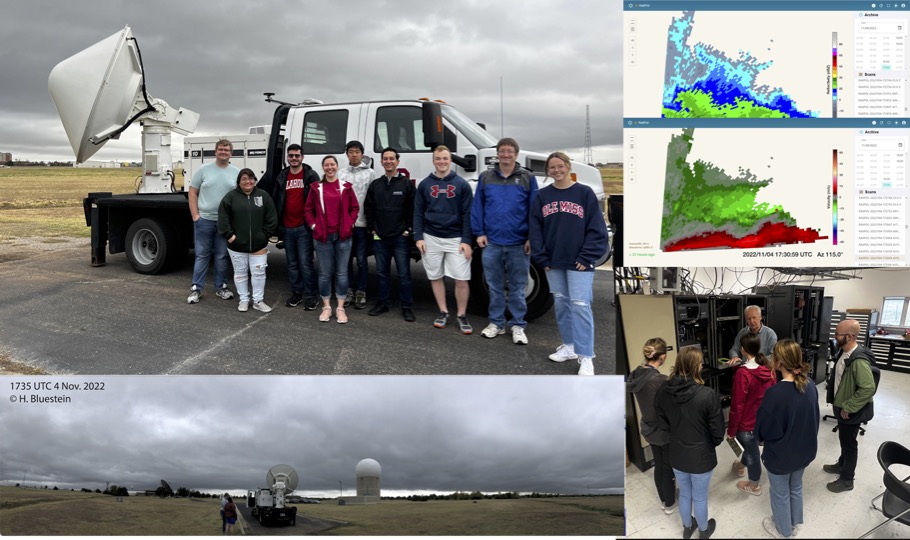
A team of scientists from the ARRC, the School of Meteorology, the Cooperative Institute for Severe and High-Impact Weather Research and Operations (CIWRO), and NSSL deployed multiple radar systems to collect data from the cold front that passed through the OKC metro area on Friday, November 4.
The RaXPol radar collected polarimetric data from 1601 - 1934 UTC, including several RHI scans approximately normal to the cold front and several PPI volume scans as well. According to the Norman Mesonet station, which was in view to the SW, the cold front’s passage over the deployment site occurred at approximately 1730 UTC. The teams felt the temperature drop 20-25 °F over an approximate time of 5 - 10 seconds following the wind shift. Simultaneous data was collected with the research WSR-88D (KOUN) and the mobile NOAA X-POL (NOXP) polarimetric radars.
The team was led by Dr. David Schvartzman, who coordinated with Drs. Howie Bluestein, David Bodine, and Valery Melnikov, to conduct the multi-frequency radar observations of the cold front and surrounding convective cells. Several students from the School of Meteorology, School of Electrical and Computer Engineering, and others affiliated with the ARRC, participated in the data collection experiment. The data will be used to conduct a dual-frequency / dual-polarization analysis with ARRC, SoM, CIWRO, and NSSL investigators collaborating to bring needed expertise together
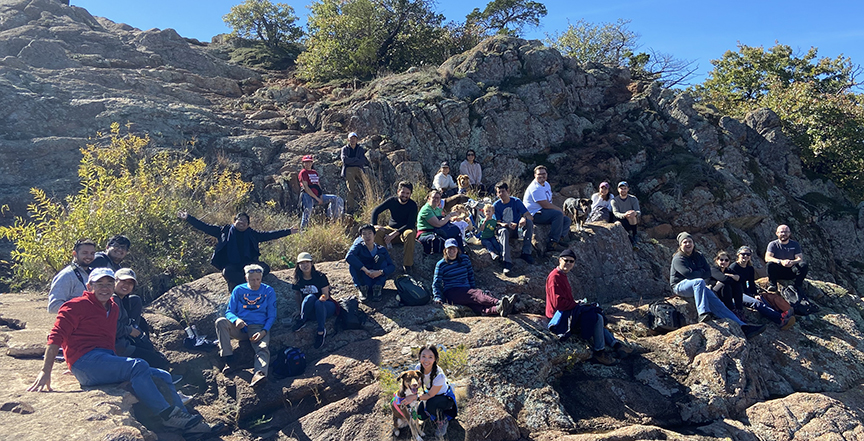
Fantastic fall weather only added to the fun for ARRC members participating in the First Annual Hiking Trip last Saturday in the Wichita Mountains near Lawton. As beautiful as the weather was, the camaraderie was even better. “Clearing our minds in nature makes our research even better!” said ARRC Executive Director Bob Palmer.
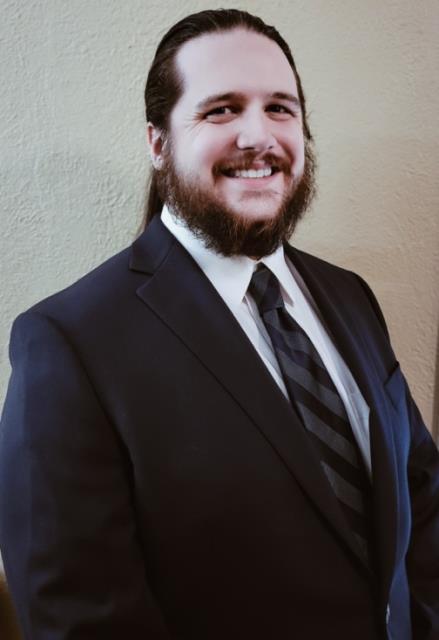
Clayton is a Ph.D. student in the School of Electrical and Computer Engineering, advised by Dr. Jessica Ruyle
How long have you been a part of the ARRC:
"I have been a part of the ARRC since January 2019."
Any scholarships/journal awards/publications etc. that you have received:
• "National Science Foundation Graduate Research Fellow".
• "C. G. Blosser, H. H. Sigmarsson and J. E. Ruyle, "Power Handling of Varactor Diode-Based Frequency Agile Antennas," 2022 IEEE International Symposium on Antennas and Propagation and USNC-URSI Radio Science Meeting (AP-S/URSI), 2022, pp. 1486-1487, doi: 10.1109/AP-S/USNC-URSI47032.2022.9886314."
• "M. R. Thibodeau, A. L. Bauer, C. G. Blosser, S. Saeedi, J. E. Ruyle and H. H. Sigmarsson, "Frequency Agile Slot Antenna Using Contactless Capacitive Loading," in IEEE Access, vol. 10, pp. 99460-99466, 2022, doi: 10.1109/ACCESS.2022.3206444."
Current Research:
"My current work focuses on circumventing fundamental limitations on electrically small antennas by dropping the linear, time-invariant restriction, primarily through the usage of negative resistance amplification."
What do you like to do in your free time:
"I like playing music with friends, playing with my dogs, and watching movies."
Plans for after graduating:
" Iplan on perusing a post-doctorate, and then most likely onto academia."
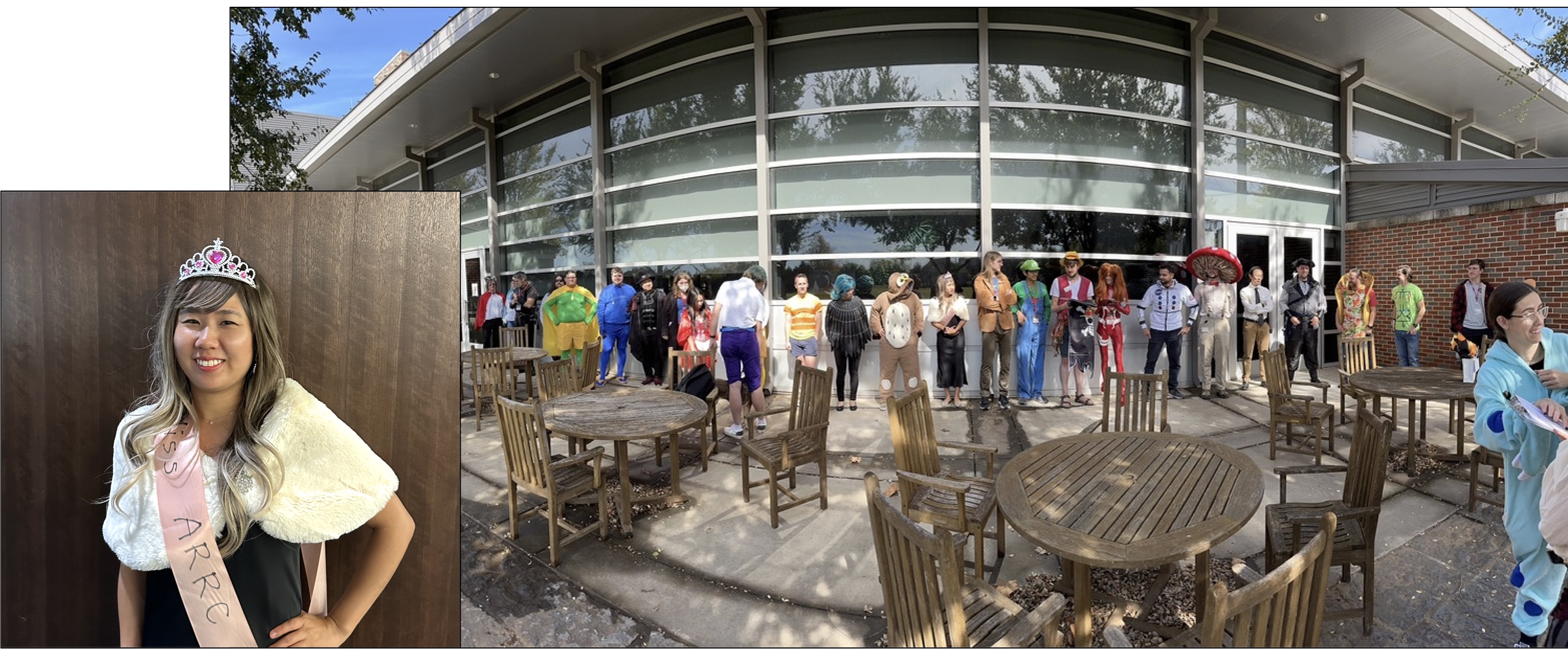
Dressed in a unique costume as "Miss ARRC", PhD student Hyeri Kim won the 1st Annual ARRC Halloween Costume Contest. Everyone enjoyed pizza and had a great time at the well-attended event.
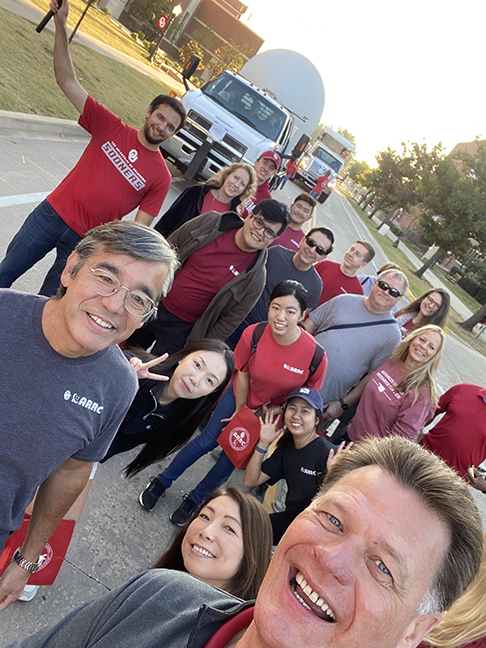
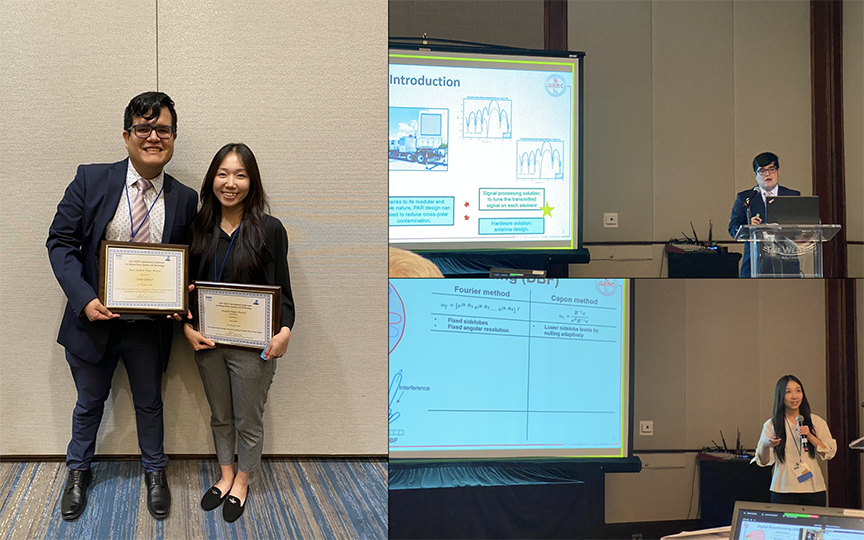
Two ARRC/ECE graduate students took top honors for best student paper presentations at the 2022 IEEE International Symposium on Phased Array Systems and Technology (PAST) held in Boston, MA, Oct. 11-14. The symposium attracted hundreds of attendees from across the world.
Cesar Salazar was awarded first place and Yoon-SL Kim took second for their contributions to advancing phased array technology for observations of severe weather. Cesar is advised by Drs. Boon Leng Cheong and Robert Palmer, and Yoon is advised by Dr. David Schvartzman.